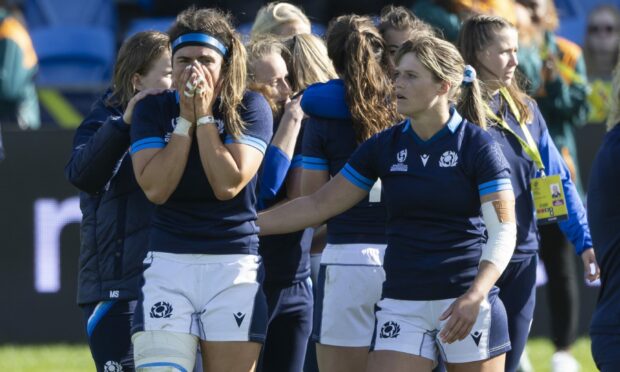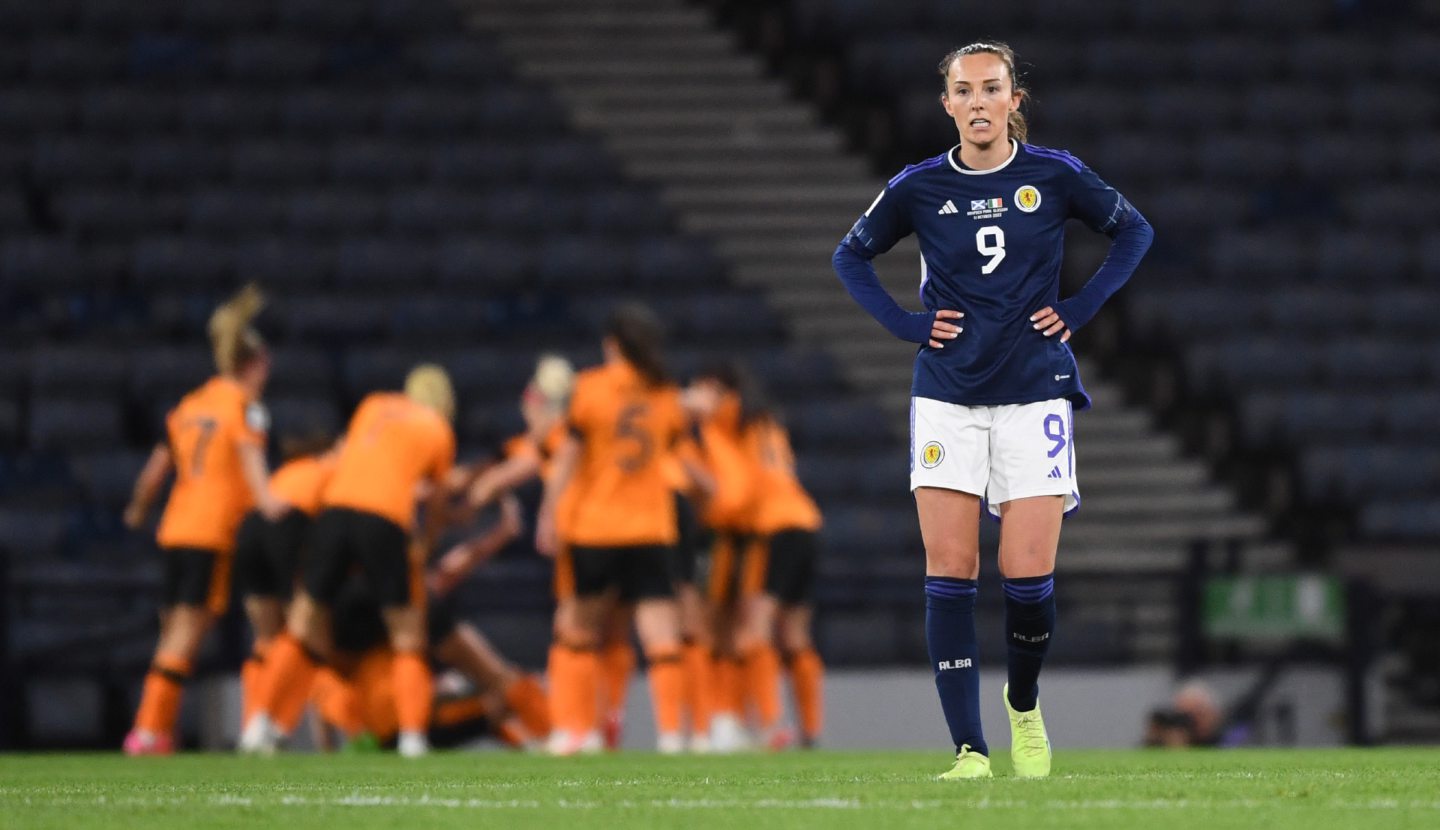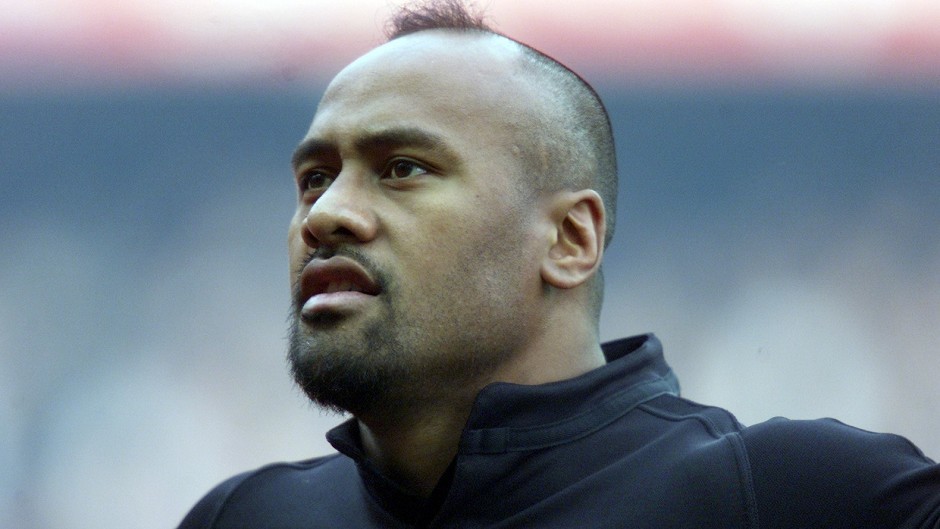It’s the hope that gets you every time. And, at least to that extent, you can say that Scottish sports teams rarely disappoint.
Early on Saturday morning, I sat down in front of the television to watch Scotland’s women tackle Australia at the Rugby World Cup in New Zealand. I had done the same the previous week when they pushed Wales all the way and were edged out 18-15 at the death despite mounting a resilient recovery in the second period.
The crestfallen expressions on their faces showed how crushed they were after that sickening conclusion. Yet, if there was any sense of deflation, the captain Rachel Malcolm is somebody who has never willingly taken a backward step in her career and she and her colleagues re-assembled with a spring in their step for their next match.
And what a performance they served up for the first hour of what was a pulsating and controversial contest. When Lana Skeldon’s try pushed them in front and their opponents were rocked by a constant wave of Scottish attacks, which eventually led to the Aussies conceding a penalty try – and the sin-binning of Adiana Talakai – the SRU’s finest led 12-0 at the interval and it had been a truly positive show from the underdogs.
By this stage, it was nearly 4am in Aberdeen, but there was no prospect of me baling out. The women were putting in a massive effort – the least I could do was stick with them and keep the faith. For a while, that solidarity was justified as a rattled Australian line-up committed a string of basic errors, and I was out of my chair a couple of times as they engaged in what Bill McLaren used to call “a bit of argy-bargy in the scrum”.
But – you knew there was a but coming – somehow they dragged themselves up from the canvas and Bienne Terita and Ashley Marsters crossed for the Wallaroos to push them 14-12 in front. Even then, the climax was a nerve-shredding affair with the Southern Hemisphere team reduced to 13 players and, in all honesty, it could have been worse.
Marsters was sent off for a dangerous tackle and Talakai, who didn’t so much flirt with trouble as invite it back to her flat with a packet of condoms, was shown the exit for giving away a cynical series of penalties. Could there, would there, be one final opportunity for Scotland to make their advantage count and seize a famous victory?
Oh, don’t be stupid. At around 5am, the proceedings finished with another tale of so near and yet so far for our gallant representatives on the international stage. Malcolm, a towering presence in her country’s cause, could hold her head high, but she was disconsolate as she admitted: “It’s heartbreaking not to be able to finish the job.”
In the midst of these rugby setbacks, Scotland’s women footballers suffered a 1-0 play-off loss to Republic of Ireland which denied Pedro Martinez Losa’s side a place in next year’s World Cup in Australia and New Zealand. Prior to the contest, there had been plenty of coverage of how players such as Caroline Weir were in the vanguard of the Scots’ aspirations to keep qualifying for the finals of these major competitions.
So, of course, it wasn’t that surprising when Weir squandered an early penalty which would have galvanised the substantial Hampden crowd and you could sense the tension creeping into the hosts as frissons of anxiety filtered down to them from the sidelines.
The Irish, who later sparked apoplectic headlines and a UEFA investigation after singing a pro-IRA chant in their dressing room, weren’t any great shakes, yet they profited from Amber Barrett’s goal in the 72nd minute and that proved sufficient.
These reverses have been part and parcel of following Scotland for longer than I care to recall. I was inside Loftus Versfeld stadium in Pretoria in 1995 when Gavin Hastings’ men led 13-3 at the interval against France and seemed destined for a meeting with Ireland – by no means the force they are now – in the quarter-finals.
The clock ticked down as we prepared to file our copy and Les Bleus were held up repeatedly as they searched for their maiden try. They were almost down and out, then, suddenly, Scott Hastings missed a tackle and Emile Ntamack dived over in the corner. At a stroke, everything changed: the Scots now faced the All Blacks and a rampaging Jonah Lomu in their next tussle and we ripped up our reports and began again.
There are plenty of other similar X-rated videos – I sat through the night in 2015 watching Scotland’s cricketers repeatedly snatching defeat from the joys of victory against Afghanistan to claim what would have been their maiden World Cup triumph; and, a few months later, referee Craig Joubert’s last-minute howler of a decision gifted the Wallabies a penalty to secure a 35-34 win in a dramatic quarter-final at Twickenham. That sparked consternation, but all the sound and fury changed nothing.
What is it in the national psyche that we never quite know whether we’re on the verge of a windfall or a catastrophe? It does make the occasional victory all the sweeter, but only in the knowledge, there will be further pain down the road.



